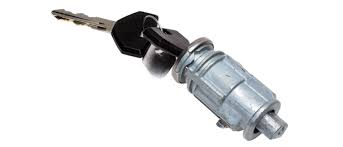It’s easy to overlook the ignition barrel — until it stops working. Whether your key refuses to turn, gets stuck, or spins freely, problems with the ignition barrel can quickly render your vehicle unusable. Understanding what this part does, why it fails, and when replacement is necessary can save you time, money, and frustration.
What Is an Ignition Barrel?
The ignition barrel (also called the ignition cylinder) is the component into which you insert your car key. But it’s far more than just a slot. It acts as a mechanical and sometimes electronic interface between your key and the vehicle’s ignition system.
In most vehicles, turning the key in the ignition barrel initiates several things:
- Disengages the steering lock
- Activates the vehicle’s electrical circuits
- Starts the engine via the starter motor
- Communicates with the immobiliser system (in modern cars)
The barrel itself houses a set of internal tumblers or wafers that match the shape of your specific key. These components must align correctly for the barrel to turn and complete the ignition sequence.
Common Signs Your Ignition Barrel May Be Failing
Like any frequently used mechanical part, the ignition barrel is subject to wear and tear. Over time, you might notice subtle signs of failure, which can worsen if ignored:
1. Difficulty turning the key
If the key feels stiff, catches partway, or requires jiggling to turn, the barrel’s internal components may be worn or misaligned.
2. Key won’t insert or remove easily
Dirt, corrosion, or mechanical wear can interfere with key insertion or cause it to become stuck.
3. Key turns, but the engine doesn’t start
This often indicates that the ignition switch (attached to the back of the barrel) is faulty or the transponder is not communicating with the immobiliser.
4. Barrel spins freely
If the barrel turns without resistance and the car doesn’t start, internal components may have broken or disconnected.
What Causes Ignition Barrel Failure?
Ignition barrels don’t usually fail overnight. Most issues are caused by one or more of the following:
- Daily wear – Repeated use eventually wears down mechanical parts
- Poor-quality keys – Copies made from worn keys can damage the barrel
- Forcing the key – Applying too much pressure or using the wrong key can misalign internal components
- Attempted theft – Tampering during a break-in can permanently damage the ignition
- Moisture and corrosion – Especially in older vehicles or those parked outside for long periods
When Is Replacement Necessary?
Some ignition barrel issues can be repaired, especially if caught early. However, if any of the following apply, full replacement is usually the most effective solution:
- The barrel is physically broken or damaged
- The key no longer aligns with the lock mechanism
- The ignition switch is failing due to internal electrical faults
- Your key turns, but the car refuses to start, even with a new battery
What Happens During Replacement?
Replacing an ignition barrel involves more than simply removing and swapping a part. The process typically includes:
- Removing the steering column covers to access the barrel
- Disconnecting the battery to avoid electrical damage
- Extracting the faulty barrel, often using specialised tools
- Installing a new barrel, which may need to be coded or adjusted to match your existing key
- Reprogramming the key, if your vehicle uses a transponder chip or keyless system
In some vehicles, especially older models, it’s possible to have a new barrel cut to match your existing key. However, for many modern vehicles, a new key and reprogramming are also required.
Who Can Replace an Ignition Barrel?
Not all garages offer this service — and dealerships can be slow and expensive. The most efficient solution is to contact a professional auto locksmith who specialises in ignition systems and key programming.
Auto locksmiths can:
- Diagnose ignition barrel problems on-site
- Replace the barrel without needing to tow your vehicle
- Cut and programme new keys if necessary
- Offer guidance on whether your existing key can still be used
A reputable locksmith will also ensure the new barrel is installed safely and tested for full functionality.
Don’t Wait Until You’re Stranded
A faulty ignition barrel isn’t just a minor inconvenience — it can leave you completely immobilised at the worst possible time. If you’re noticing early signs of trouble, it’s best to address them now before the issue becomes critical.
By understanding how the ignition barrel works and who to call when things go wrong, you’ll be better prepared to keep your vehicle on the road — and avoid the stress of unexpected breakdowns.
When writing this article, materials from https://fixmyignition.co.uk/locations/brighton/ were used.
